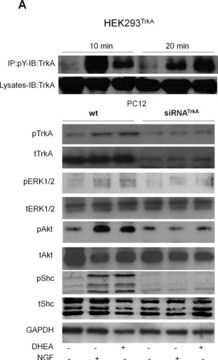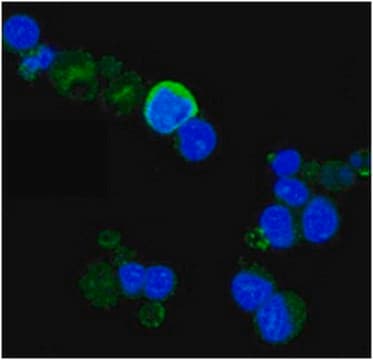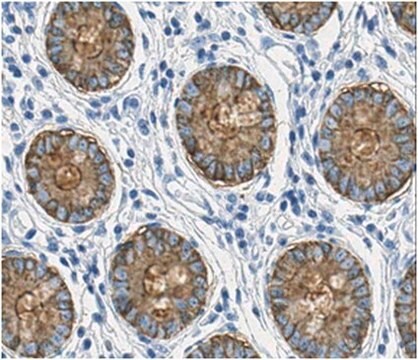T9691
Anti-phospho-TrkA (pTyr490) antibody produced in rabbit
affinity isolated antibody, buffered aqueous glycerol solution
About This Item
Productos recomendados
biological source
rabbit
Quality Level
conjugate
unconjugated
antibody form
affinity isolated antibody
antibody product type
primary antibodies
clone
polyclonal
form
buffered aqueous glycerol solution
mol wt
antigen 140 kDa
species reactivity
rat, mouse, human
technique(s)
immunocytochemistry: 1:100 using cultured cells
immunohistochemistry (frozen sections): 1:10
immunoprecipitation (IP): 1:250
western blot: 1:1,000 using NGF-treated PC12 cells
UniProt accession no.
shipped in
wet ice
storage temp.
−20°C
target post-translational modification
phosphorylation (pTyr490)
Gene Information
human ... NTRK1(4914)
mouse ... Ntrk1(18211)
rat ... Ntrk1(59109)
Categorías relacionadas
General description
Immunogen
Application
Physical form
Disclaimer
Not finding the right product?
Try our Herramienta de selección de productos.
Storage Class
10 - Combustible liquids
wgk_germany
WGK 2
flash_point_f
Not applicable
flash_point_c
Not applicable
Certificados de análisis (COA)
Busque Certificados de análisis (COA) introduciendo el número de lote del producto. Los números de lote se encuentran en la etiqueta del producto después de las palabras «Lot» o «Batch»
¿Ya tiene este producto?
Encuentre la documentación para los productos que ha comprado recientemente en la Biblioteca de documentos.
Nuestro equipo de científicos tiene experiencia en todas las áreas de investigación: Ciencias de la vida, Ciencia de los materiales, Síntesis química, Cromatografía, Analítica y muchas otras.
Póngase en contacto con el Servicio técnico






